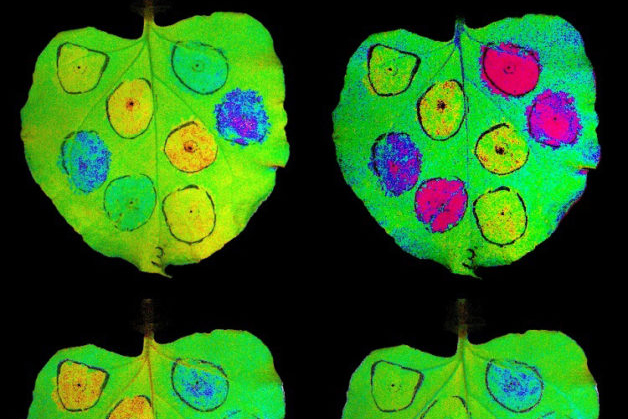Crop yield gets boost by tweaking how plants use sunlight
Plant biologists have developed a method to increase crop productivity, which could be used to help address the world’s future food needs.

November 22, 2016
Plant biologists have bumped up crop productivity by increasing the production of genes that result in more efficient use of light in photosynthesis, a finding that could be used to help address the world’s future food needs.
Scientists at UC Berkeley, the Department of Energy’s Lawrence Berkeley National Laboratory and the University of Illinois targeted three genes involved in a process plants use to protect themselves from damage when they get more light than they can safely use. By increasing the expression of those genes, the scientists saw increases of 14-20 percent in the productivity of modified tobacco plants in field experiments.
The researchers described their findings in a paper published Nov. 18 in the journal Science. The research was also featured recently in the New York Times.
“Tobacco was used as the model crop plant in this study because it is easy to work with, but we’re working to make the same modifications in rice and other food crops,” said co-senior author Krishna Niyogi, a UC Berkeley professor of plant and microbial biology. “The molecular processes we’re modifying are fundamental to plants that carry out photosynthesis, so we hope to see a similar increase in yield in other crops.”